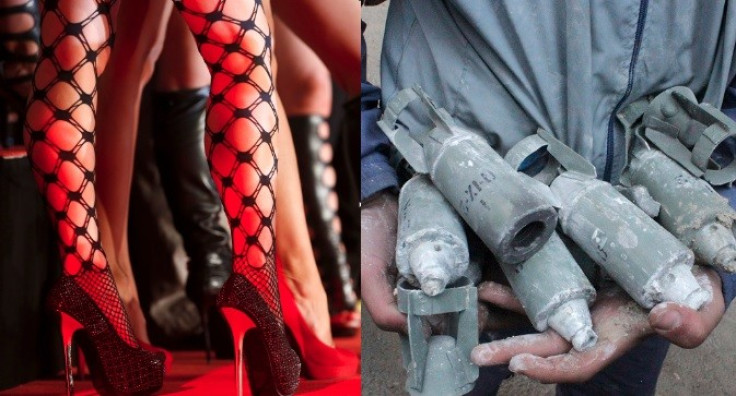All Your Pensions Are Likely to Be Linked to Weapons, Porn and the Massacre of Syrian Civilians

The public and professional chatterati start salivating every time a prominent figure or institution is found to be in some way linked to a 'sin trade,' through their investments, no matter how long or tenuous the link is.
But what they don't seem to understand is that they too are likely to be making their retirement money, through unethical companies and products, or that the bank they got that loan to renovate their house with has engaged in questionable practices.
For example, when the Church of England admitted that its pension fund is linked to payday loan company Wonga, only a day after the Archbishop of Canterbury said that he wants to try and put that industry out of business, everyone was quick to guffaw and slap each other on the back for 'finding out' that yet another institution was a giant hypocrite.
So, did the CoE directly hand over a bag of cash to Wonga? No.
Pensions for CoE clergy and other staff are placed in a fund which invests in US-based venture capital firm Accel Partners (AP). AP was instrumental in leading fundraising efforts for Wonga in 2009.
The CoE story is not uncommon.
While some are still hell-bent on finding those linked to the 'sin trades', such as porn, weapons, tobacco companies, it is likely that if you looked into anyone's investments that it would tentatively lead back to the same thing.
Unless you have directly opted into a specified 'ethical fund', it is likely that you put your money into a fund run by a manager seeking out high yielding companies or activities.
If, for instance, your pension is linked to equity indexes, which a number are, your return is based on essentially how well groups of companies do.
On basic level, if the pension is based on the performance FTSE100, you will only make a sizeable return if some of the country's largest drug, mining, financial and defence companies soar in share price.
Those companies are all linked in some way to 'unethical' activities, whether it is war, human rights violations, corruption - you name it.
The latest report by Dutch group IKV Pax Christi, entitled Worldwide Investments in Cluster Munitions: a Shared Responsibility, only highlights the fact that it is likely that anyone who has a pension, whether public of private, will in some way be linked back to weapons, for instance.
At first reading, the fact that 139 financial institutions around the world invested billions of dollars in cluster munitions producers since June 2010 signals an evil empire of corporates masterminding the end of the world.
These types of bombs were used in the recent Syrian civil war that killed hundreds of thousands of people.
However, under closer inspection, the document highlights that these financial groups service a range of companies in the same way it provides services to the everyday person on the street, with products such as such as mortgages, personal loans, student overdraft, or a pension.
You just have to look at what financials have either serviced a debt refinancing programme or lent money to a defence firm to back link the activities to the pensioner on the street.
Again, whether you work for the public or private sector, unless your employer has actively signed you up for an ethical pension fund, they give your pension to a manager or group who will then invest it into different markets, products, companies and other funds.
Those other funds could also be backing the adult entertainment industry or investing in companies that make weapons.
For instance, the California State Teachers' Retirement System (CalSTRS) said last year that it was reviewing its $751.4m investment with Cerberus, after a gun that was made by the private equity firm's weapons maker Freedom group was used in the Sandy Hook shootings. The massacre claimed 27 lives, including 20 school children.
The point is we can ostracise institutions and individuals by linking them in this way to unethical practices, but consumers have to then ask themselves if they are just as responsible for not knowing where their retirement cash pile is coming from.
Glass houses, etc.
© Copyright IBTimes 2024. All rights reserved.






